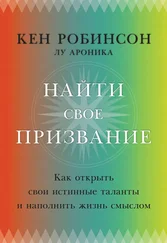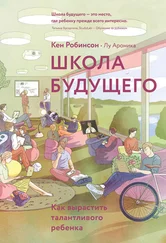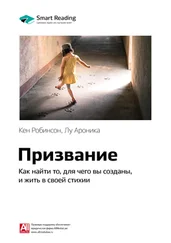Кен Робинсон - The Element
Здесь есть возможность читать онлайн «Кен Робинсон - The Element» весь текст электронной книги совершенно бесплатно (целиком полную версию без сокращений). В некоторых случаях можно слушать аудио, скачать через торрент в формате fb2 и присутствует краткое содержание. Год выпуска: 2009, ISBN: 2009, Издательство: Penguin Books Ltd, Жанр: Самосовершенствование, на английском языке. Описание произведения, (предисловие) а так же отзывы посетителей доступны на портале библиотеки ЛибКат.
- Название:The Element
- Автор:
- Издательство:Penguin Books Ltd
- Жанр:
- Год:2009
- ISBN:9780141911250
- Рейтинг книги:3 / 5. Голосов: 1
-
Избранное:Добавить в избранное
- Отзывы:
-
Ваша оценка:
- 60
- 1
- 2
- 3
- 4
- 5
The Element: краткое содержание, описание и аннотация
Предлагаем к чтению аннотацию, описание, краткое содержание или предисловие (зависит от того, что написал сам автор книги «The Element»). Если вы не нашли необходимую информацию о книге — напишите в комментариях, мы постараемся отыскать её.
The Element — читать онлайн бесплатно полную книгу (весь текст) целиком
Ниже представлен текст книги, разбитый по страницам. Система сохранения места последней прочитанной страницы, позволяет с удобством читать онлайн бесплатно книгу «The Element», без необходимости каждый раз заново искать на чём Вы остановились. Поставьте закладку, и сможете в любой момент перейти на страницу, на которой закончили чтение.
Интервал:
Закладка:
There’s no shortage of people who achieved significant things in their later years. Benjamin Franklin invented the bifocal lens when he was seventy‐eight. That’s how old Grandma Moses was when she decided to get serious about painting. Agatha Christie wrote The Mousetrap , the world’s longest‐running play, when she was sixty‐two. Jessica Tandy won the Oscar for Best Actress at age eighty. Vladimir Horowitz gave his last series of sold‐out piano recitals when he was eighty‐four.
Compare these accomplishments with the premature resignation of people you know in their thirties or forties, who behave as if their lives have settled into a dull routine and who see little opportunity to change and evolve.
If you’re fifty, exercise your mind and body regularly, eat well, and have a general zest for life, you’re likely younger—in very real, physical terms—than your neighbor who is forty‐four, works in a dead‐end job, eats chicken wings twice a day, considers thinking too strenuous, and looks at lifting a beer glass as a reasonable daily workout.
Dr. Henry Lodge, coauthor of Younger Next Year , makes the point sharply. “It turns out,” he says, “that 70% of American aging is not real aging. It’s just decay. It’s rot from the stuff that we do. All the lifestyle diseases… the diabetes, the obesity, the heart disease, much of the Alzheimer’s, lots of the cancers, and almost all of the osteoporosis, those are all decay. Nature doesn’t have that in store for any of us. We go out and buy it off the rack.”
The people at realage.com have pulled together a set of metrics designed to calculate your “real age” as opposed to your chronological age. It takes into consideration a wide range of factors regarding lifestyle, genetics, and medical history. What’s fascinating about this is that their work suggests that it’s actually possible to make yourself younger by making better choices.
One way to improve your real age is to take better care of yourself physically, through exercise and nutrition. I know this, because I live in California, where everyone seems to have stock in Lycra, and dairy products have the same health status as cigarettes. I try my best to live healthily, too. I aim to do sit‐ups every day and to avoid dessert. But it’s not only about working out and eating in.
One of the fundamental precepts of the Element is that we need to reconnect with ourselves and to see ourselves holistically. One of the greatest obstacles to being in our Element is the belief that our minds somehow exist independently of our bodies, like tenants in an apartment, or that our bodies are really just a form of transport for our heads. The evidence of research, and of common sense, is not only that our physical health affects our intellectual and emotional vitality, but that our attitudes can affect our physical well‐being. But equally important is the work you do to keep your mind young. Laughter has a huge impact on aging. So does intellectual curiosity. Meditation can also provide significant benefits to the physical body.
The answer to the question, Is it too late for me to find the Element? is simple: No, of course not. Even in the cases where the physical degradations that come with age make certain achievements impossible, the Element is still within reach. I’ll never get that speed‐skating gold, but if the sport meant that much to me (it doesn’t), I could find a way to gain access to that tribe, perhaps using the skills I already have and those I could acquire to make a meaningful contribution to that world.
Keeping Things Plastic
What this really comes down to is our capacity to continue to develop our creativity and intelligence as we enter new stages in our lives. Obviously, it happens in dramatic ways when we’re very young. The infant brain is tremendously active and enormously plastic. It is a ferment of potential. It has somewhere near one hundred billion neurons, and it can make a nearly infinite variety of possible connections, building what scientists call “neural pathways” out of what we encounter in the world. Our brains are preprogrammed to some degree by our genetics, but our experiences deeply affect how we evolve as individuals and how our brains develop.
Consider, for instance, how we learn language. Learning to speak is one of the most miraculous achievements in a child’s life. It happens for most of us within our first few years. No one teaches language to us—certainly not our parents. They couldn’t possibly do that because spoken language is too complex, too subtle, and too full of variations for anyone to teach it formally to a child. Of course, parents and others guide and correct young children as they learn to speak and they may encourage and applaud them. But babies don’t learn to speak by instruction. They learn by imitation and inference. We are all born with a deep, instinctive capacity for language, which is activated almost as soon as we draw breath.
Babies instinctively recognize meanings and intentions in the sounds and tones they hear from other humans around them. Babies born into households with dogs as pets will respond to the noises and growls that dogs make. However, they don’t confuse these sounds with human language. Most children don’t opt for barking as a way of communicating—with the possible exception of the terrible twos and a couple of years in late adolescence.
There doesn’t seem to be any obvious limit to our capacity for languages. Children born into multilingual households are likely to learn each of these languages. They don’t reach a point of saturation and say, “Please keep my grandmother out of here. I can’t handle another dialect.” Young children tend to learn all the languages to which they are exposed and to slip effortlessly between them. I recall meeting three school‐age brothers a few years ago. Their mother was French, their father was American, and they lived in Costa Rica. They were fluent in French, English, and Spanish as well as an amalgam they created from the three that they used exclusively when speaking with each other.
On the other hand, if you are born into a monolingual household, the odds are that you won’t seek out other languages to learn, at least until you need to choose one in middle school. Learning a new language at that point is a much more difficult thing to do because you’ve already paved a large number of neural pathways with regard to language (in other words, you’ve made a huge number of yes/no decisions about what to call a particular item, how to form sentences, and even how to shape your mouth when speaking). Trying to speak a foreign language for the first time in your thirties is even tougher.
The neuroscientist Susan Greenfield illustrates the amazing plasticity of the young brain in a cautionary tale of a six‐year‐old boy in Italy, who was blind in one eye. The cause of his blindness was a mystery. As far as the ophthalmologists could tell, his eye was perfectly normal. They eventually discovered that when he was a baby, he had been treated for a minor infection. The treatment included having the eye bandaged for two weeks. This would have made little difference to the eye of an adult. But in a young baby, the development of the eye‐to‐brain neural circuits is a delicate and critical process. Because the neurons serving the bandaged eye were not being used during this crucial period of development, they were treated by the brain as though they weren’t there at all. “Sadly,” said Greenfield, “the bandaging of the eye was misinterpreted by the brain as a clear indication that the boy would not be using the eye for the rest of his life.” The result was that he was permanently blinded in that eye.
Young brains are in a constant process of evolution and change, and extremely reactive to their environment. During early stages of development, our brains go through a process that cognitive scientists call “neural pruning.” Essentially, this involves trimming away neural pathways that we determine at an unconscious level to have little long‐term value to us. This pruning is of course different for every individual, but it is a tremendously necessary part of development. It serves the same function in our brains as pruning does to a tree—it gets rid of the unnecessary branches to allow for continued growth and increased overall strength. It shuts down pathways that we’ll never use again in order to make room for the expansion of pathways that we will use regularly. As a result, the enormous natural capacities with which we are all born become shaped and molded, expanded or limited, through a constant process of interaction between internal biological processes and our actual experiences in the world.
Читать дальшеИнтервал:
Закладка:
Похожие книги на «The Element»
Представляем Вашему вниманию похожие книги на «The Element» списком для выбора. Мы отобрали схожую по названию и смыслу литературу в надежде предоставить читателям больше вариантов отыскать новые, интересные, ещё непрочитанные произведения.
Обсуждение, отзывы о книге «The Element» и просто собственные мнения читателей. Оставьте ваши комментарии, напишите, что Вы думаете о произведении, его смысле или главных героях. Укажите что конкретно понравилось, а что нет, и почему Вы так считаете.












